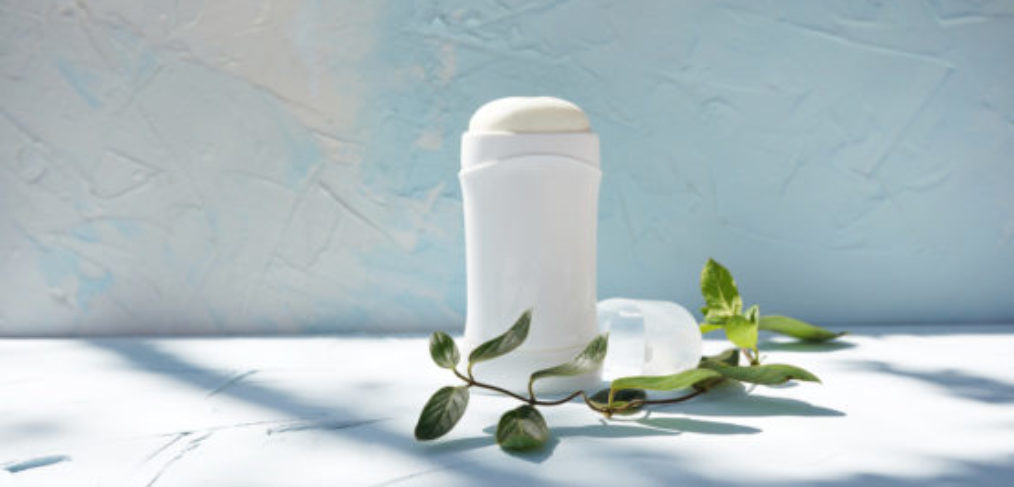Aluminum in My Armpits: What’s the Big Deal?

No one likes to the feel of sweaty armpits during day to day activities.
It’s one thing to intentionally work up a sweat during a workout, but wetness in the underarms and the damp circles on clothing that go along with it is hardly a desirable sensation.
Which is why it makes perfect sense that antiperspirants and deodorants are as popular as they are.
A little history: In the 1910s deodorants and antiperspirants were relatively new inventions. The first deodorant, which kills odor-producing bacteria, was called Mum and had been trademarked in 1888, while the first antiperspirant, which thwarts both sweat-production and bacterial growth, was called Everdry and launched in 1903. 100 years later, the deodorant and antiperspirant industry is worth $18 billion (1).
How do they work?
Most antiperspirants contain aluminum.
Antiperspirants help you sweat less by blocking your pores, the tiny openings in your skin that sweat comes out of. These antisweating products contain many ingredients, including aluminum salts, also called aluminum chlorohydrate. The salts dissolve on your skin and “melt” into your pores. This helps plug up your pores and stop some of your sweat (2).
Yes, you read that correctly, when we apply aluminim-based antiperspirants to our underarms, we are applying a topical stopper to our pores.
Having dry armpits is not without consequence.
We all know the benefits of sweating; sweat glands help our skin filter toxins out of the body, which in turn boosts our immune system. Sweating also cools our body and maintains proper body temperature.
So by stopping this natural process, we are compromising our body’s ability to detox and putting extra stress on it by not allowing it to maintain an optimal temperature.
To add insult to injury, we’re also increasing our risk of cancers; aluminum-containing underarm antiperspirants, which are applied frequently and left on the skin near the breast, may be absorbed by the skin and have estrogen-like (hormonal) effects (4).
Because estrogen can promote the growth of breast cancer cells, some scientists have suggested that the aluminum-based compounds in antiperspirants may contribute to the development of breast cancer. In addition, it has been suggested that aluminum may have direct activity in breast tissue.
Last but not least, some research has focused on parabens, which are preservatives used in some deodorants and antiperspirants that have been shown to mimic the activity of estrogen in the body’s cells.
Is it worth it?
There are other alternatives, such as Beautycounter’s Clean Deo.
This hardworking deodorant neutralizes odor and absorbs sweat to keep you feeling fresh all day*, every day. Made without aluminum, it glides on smoothly without leaving white residue and has a tropical coconut scent.
Fragrance notes: a refreshing blend of tropical coconut, sandalwood, and sweet vanilla.
If you’re experiencing strong body odor, rather than trying to mask it with fragrance based antiperspirants, look for the underlying cause.
Body odor comes from the bacteria that live on sweaty parts of your body and certain factors can make you more likely to develop body odor (6):
– Being overweight: Skin folds can hold sweat and bacteria. This creates an ideal home for body odor.
– Eating spicy, pungent foods: These don’t make your sweat smell. The scents of these foods can seep through your skin, though. This might make body odor seem worse.
– Certain medical conditions: Some conditions can change your normal body scent. These include diabetes, kidney problems or liver disease, and an overactive thyroid. Some very rare genetic conditions can also change your body’s odor. In some cases, an odd body odor can be a sign of something more serious. For example, a bleach-like or urine-like smell may mean kidney or liver problems.
– Stress: Stress causes your apocrine glands to work overtime. Remember, these are the glands that cause smelly sweat. So, you may notice an increase in body odor right before a stressful event.
Look at what you’re eating, how you’re exercising and what products you’re using on your biggest organ.
If that doesn’t reveal enough answers, check in to see your functional medicine doctor for a deep dive into what could be going on at deeper level address the root cause rather than a symptom.
- https://www.smithsonianmag.com/history/how-advertisers-convinced-americans-they-smelled-bad-12552404/
- https://www.healthline.com/health/what-to-know-about-aluminum-in-deodorant#aluminum-in-products
- https://www.healthline.com/health/sweating-benefits
- Darbre PD. Aluminium, antiperspirants and breast cancer. Journal of Inorganic Biochemistry 2005; 99(9):1912–1919
- Darbre PD, Mannello F, Exley C. Aluminium and breast cancer: Sources of exposure, tissue measurements and mechanisms of toxicological actions on breast biology. Journal of Inorganic Biochemistry 2013; 128:257-261
- https://www.verywellhealth.com/what-causes-body-odor-4154534





